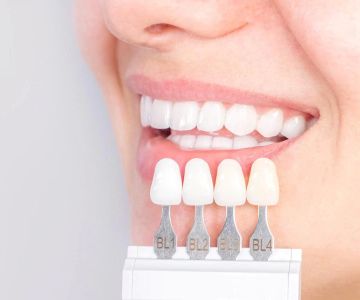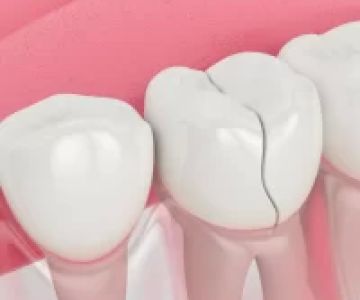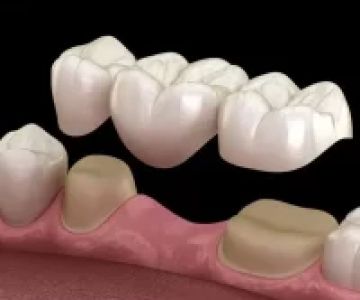Understanding the Causes of Mouth Ulcers: What You Need to Know
- What Are Mouth Ulcers and How Do They Form?
- Common Causes of Mouth Ulcers
- What Triggers Mouth Ulcers?
- Can Mouth Ulcers Be Prevented?
- When to Seek Professional Help for Mouth Ulcers
What Are Mouth Ulcers and How Do They Form?
Mouth ulcers, also known as canker sores, are painful lesions that develop on the soft tissues inside your mouth. These ulcers can appear on the inner cheeks, gums, tongue, and lips. Typically round or oval in shape, they are characterized by a white or yellow center surrounded by a red border. While they are usually harmless, mouth ulcers can be incredibly uncomfortable and disrupt your ability to eat, drink, or speak.
The exact cause of mouth ulcers is not always clear, but there are a variety of factors that can contribute to their development. Some people may experience mouth ulcers as a one-time occurrence, while others may suffer from recurrent outbreaks.
Common Causes of Mouth Ulcers
There are several known causes of mouth ulcers. Here are the most common:
- Trauma or Injury: Accidental biting of the cheek, brushing too hard, or dental work like braces or dentures can lead to mouth ulcers.
- Stress: Emotional or physical stress is one of the leading triggers for mouth ulcers. The stress response may cause an imbalance in the body's immune system, leading to the development of sores.
- Hormonal Changes: Changes in hormone levels, particularly during menstruation, can trigger mouth ulcers, especially in women.
- Dietary Deficiencies: A lack of essential vitamins and minerals, particularly B vitamins, zinc, and iron, has been linked to the development of mouth ulcers.
- Genetics: Family history plays a role in the frequency of mouth ulcers. If your parents or siblings experience recurring canker sores, you're more likely to get them as well.
What Triggers Mouth Ulcers?
In addition to the primary causes, several factors can trigger the appearance of mouth ulcers. These triggers may vary from person to person, but some of the most common include:
- Spicy or Acidic Foods: Foods like citrus fruits, tomatoes, or spicy dishes can irritate the lining of the mouth and trigger ulcer formation.
- Food Allergies: Certain food allergies can result in mouth ulcers. If you notice a correlation between specific foods and the development of sores, it may be worth eliminating those foods from your diet.
- Infections: Viral infections, such as the common cold or cold sores, can lead to mouth ulcers, especially when the immune system is weakened.
- Medications: Some medications, particularly those that affect the immune system or cause gastrointestinal upset, may lead to mouth ulcers as a side effect.
It's important to track your triggers to understand better what causes your specific mouth ulcers. Keeping a food and lifestyle diary can help identify patterns and prevent future outbreaks.
Can Mouth Ulcers Be Prevented?
While it may not always be possible to prevent mouth ulcers entirely, there are several steps you can take to reduce the risk of developing them:
- Maintain Oral Hygiene: Brush and floss your teeth regularly with a soft toothbrush to avoid irritating your mouth.
- Eat a Balanced Diet: Ensure you're getting enough vitamins and minerals, particularly B vitamins, zinc, and iron, which are important for maintaining healthy oral tissues.
- Manage Stress: Stress management techniques such as yoga, meditation, or regular exercise can help reduce the frequency of mouth ulcers.
- Avoid Trigger Foods: If you identify specific foods that irritate your mouth, consider avoiding them, especially during times when you're prone to mouth ulcers.
When to Seek Professional Help for Mouth Ulcers
Most mouth ulcers heal on their own within one to two weeks. However, if you experience frequent, severe, or persistent mouth ulcers, it may be time to consult with a healthcare provider. You should seek professional advice if:
- The ulcers are unusually large or painful.
- The sores last longer than three weeks.
- You develop other symptoms like fever or swollen lymph nodes.
- You have difficulty eating, drinking, or speaking due to the ulcers.
In some cases, recurrent mouth ulcers may indicate an underlying medical condition, such as an autoimmune disorder or gastrointestinal disease. A healthcare provider can help identify any potential causes and recommend appropriate treatments.







 Seidner Dentistry & Associates4.0 (555 review)
Seidner Dentistry & Associates4.0 (555 review) Thomas Pham Dentistry4.0 (26 review)
Thomas Pham Dentistry4.0 (26 review) Omnia Dental5.0 (183 review)
Omnia Dental5.0 (183 review) DENTISTRY IN MOTION LLC0.0 (0 review)
DENTISTRY IN MOTION LLC0.0 (0 review) Perfect Teeth Dental & Orthodontics - Olive4.0 (384 review)
Perfect Teeth Dental & Orthodontics - Olive4.0 (384 review) Sunny Smiles Pediatric Dentistry4.0 (153 review)
Sunny Smiles Pediatric Dentistry4.0 (153 review) The Importance of Oral Health Education During Pregnancy for a Healthy Pregnancy
The Importance of Oral Health Education During Pregnancy for a Healthy Pregnancy Best Tips for Brushing Your Teeth Properly for Healthy Gums: Essential Techniques for Oral Health
Best Tips for Brushing Your Teeth Properly for Healthy Gums: Essential Techniques for Oral Health Why Skipping Dental Checkups Can Lead to Bigger Oral Health Problems
Why Skipping Dental Checkups Can Lead to Bigger Oral Health Problems Advantages of Porcelain Dental Restorations
Advantages of Porcelain Dental Restorations How Can Diabetes Cause Tooth and Gum Problems? Preventing and Managing Oral Health Issues
How Can Diabetes Cause Tooth and Gum Problems? Preventing and Managing Oral Health Issues Healthy Habits for Promoting Good Oral Health and Hygiene: Tips for a Healthy Smile
Healthy Habits for Promoting Good Oral Health and Hygiene: Tips for a Healthy Smile